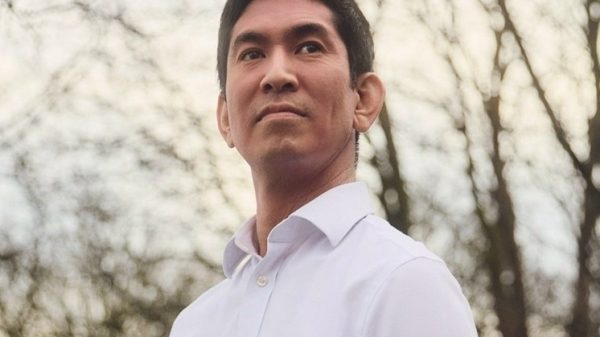 Chelsea academy product Conor Gallagher faces an uncertain future at Stamford Bridge. Photo: Getty Images/Chris Lee
Chelsea academy product Conor Gallagher faces an uncertain future at Stamford Bridge. Photo: Getty Images/Chris Lee
English football is getting better with quality players and more of them — 12 years of the biggest investment in the game in the history of the game has resulted in England's youth teams winning and the senior team finishing in the FIFA top four. More highly qualified academy coaches, better playing programs, progressive academy directors offering modern solutions to old problems on and off the field.
Creating great players is an inexact science. Each one does it differently, relying on the different qualities of the next. Additionally, the added contact hours mean that the pressure on families to support children through this process has never been greater. The standard has soared and the percentage who make it to the Premier League remains tiny. However, the rewards for those who do are enormous.
At the heart of a great machine, the status of a young footballer is subject to the pressures of changing finances and the rules of the game. For all these reasons, it is more important than ever to produce players — although this does not necessarily mean playing for the first team.
Conor Gallagher has captained Chelsea for much of the season in the absence of fellow academy graduate Reece James, yet he is a prime candidate to be sold this window. His situation comes as a result of the costs incurred by the club's owners, who are now seeking recovery on the other side of their Profit and Sustainability Rules (PSR) calculations. The Homegrown Player, as we know, is a powerful commodity in the PSR puzzle, generating a net profit on the balance sheet unlike others whose costs are based on transfer fees and selling obligations.
Mason Mount, Brennan Johnson and Anthony Gordon were sold by their clubs, partly to cut costs elsewhere. Scott McTominay, Emile Smith, Rowe could follow the same path at their clubs, as well as Gavi at Barcelona. Cole Palmer and James Trafford have been big sellers for Manchester City. The same goes for Jayden Philogen and Cameron Archer, once of Aston Villa, who left last summer with buyback terms.
Brennan Johnson left first club Nottingham Forest to join Spurs last summer. Photo: Getty Images/Rob Newell
Compliance with PSR — financial fair play — dictates modern football strategy for both the richest clubs and the poorest. He was instrumental in the creation of the multi-club system, the restoration of stadiums and even, possibly, the construction of new affiliated grounds. However, the most curious thing was the effect on the homegrown player. He has never been more valuable, and his position has never been so potentially unstable.
Under normal circumstances, Gallagher would never have been sold to Chelsea, certainly not to a potential rival like Tottenham. A Surrey boy who has been with the club throughout the academy program, he has both weaknesses and strengths but is a definite asset. All of this currently outweighs what he can do for Chelsea's PSR. Especially considering the possible financial consequences of the club not qualifying for the Champions League next season.
Developing players for sale rather than the first team is not a new phenomenon: Chelsea pioneered this in the 2000s, followed by the most successful development club of the era, City. In European football it is, with rare exceptions, part of every club's business plan. Clubs have long sold their best home-grown talent, but the dynamic has changed. The downside to any big move in the transfer market is that the ultimate cost may be top academy talent.
From a strategy perspective, this is just another aspect of how recruiting departments work in the chess game. For the players themselves, it's yet another consideration in the monumental task of going from their childhood parks to established first-team players. This path, taken by many great people over the years, seems simple compared to the modern route.
Clubs will be required to invest in academies as much as ever. The latest ruling from the European Court of Justice suggests that UEFA's concept of home-grown players, which includes all those produced by clubs of the same national association, must be changed. Instead, the homegrown quota — currently six in Premier League teams — must be filled by players who have graduated from that club's academy.
At the same time, the old route to signing players as young as 16 from European Union academies, such as Cesc Fabregas and Gerard Pique, who would then be considered homegrown, has been closed by Brexit. In his place is an «elite player with significant contribution» — effectively a sort of «wild card» work permit to sign young players around the world. Persons under 21 years of age do not have to be included in the 26 players in the Premier League squad.
 Was Cesc Fabregas signed contract with Arsenal at the age of 16, he will not be considered a home-grown player. Photo: Action Images/Michael Regan
Was Cesc Fabregas signed contract with Arsenal at the age of 16, he will not be considered a home-grown player. Photo: Action Images/Michael Regan
All this puts pressure on the homegrown players who manage to survive. Their competition isn't just British boys or even EU boys. The Premier League market for development players now spans the globe. Once upon a time, the requirement was whether you were good enough to make the first team. Now a homegrown player can be brought in to fill vital quotas or even eliminate PSR overspending.
Most of the changes have been made with the guys in mind. Pastoral care is as good as ever. The Football Association has negotiated new work permits with the Home Office and governing body approval, with players qualifying for England a firm priority. A 17-year-old boy's professional contracts change his and his family's lives. However, the status of a homegrown player reflects the status of the modern English game.
That is, high stakes — pressure to win and balance PSR compliance. Succeed and the reward will come. If you lose, you will definitely be sold. Or, in some cases, sold anyway.






















































Свежие комментарии